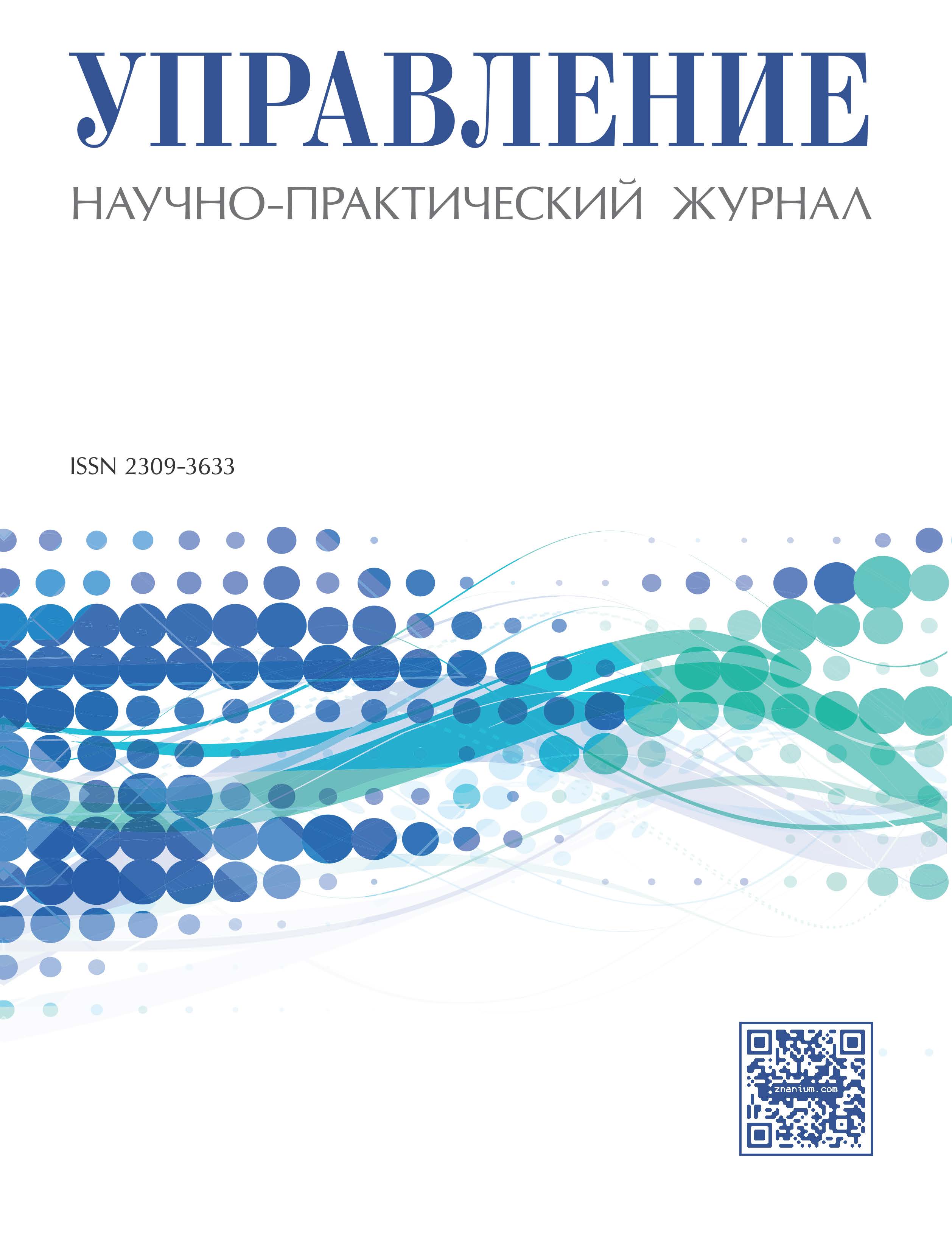This paper’s urgency consists in the need for the most effective using of the human capital for counteraction to security threats related to social-economic and political systems in all areas of activity. The paper’s subject is connected with developments, which are conducted in Nature Management and Environmental Security (NM&ES) Chair of the State University of Management in the frame of scientific school “Risk Management and Security Assurance for Social-Economic and Political Systems” which head is the Honored Scientist of the Russian Federation, Professor, Doctor of Engineering Ya.D. Vishnyakov. The problem has global character, and within the country becomes an issue of national security ensuring. Therefore this paper subject is included into one of above-mentioned scientific school’s research directions — “Strategic Risk Management and Ecological-Economical Damage Assessment in Social-Economic and Political Systems”. Considering all range of the modern world threats and their catastrophic consequences it is possible to tell with confidence that the existing civilization is the risk one. It is common knowledge that so-called «human factor» (HF) plays the essential role in the origin of accidents and catastrophes leading to emergency situations. This factor’s negative role can be manifested in the lack of timely intervention, wrong intervention, correct, but untimely intervention, excess or harmful intervention. In the research of the HF phenomenon it is necessary to reveal, first of all, not only it’s cause-effect relations with the emergency, but also to develop mechanisms allowing to use as much as possible opportunities which are put in the HF concept. First of all it belongs to vocational training of persons making crucial decisions on security assurance, their continuous self-improvement and education, increase of these persons’ rigor and responsibility. The security assurance problem solution demands not only a high standard for knowledge and abilities of experts on all management levels, but also understanding by them a huge responsibility for future world order. According to the Russian Federation’s National Security Strategy till 2020 the human potential development and Russia’s human capital role increase are the priority direction in country’s further successful development. In the conditions of natural and technogenic risk increasing and market competition strengthening, the knowledge management becomes a major factor of risk mitigation, security assurance of population and State’s economical objects, improving competitiveness. Only thus the modern civilization of risk, using the human capital’s intellectual power as a basis for the most effective human factor management, becomes a knowledge and risk civilization. This thesis understanding and adoption of urgent decisions on security assurance will allow mitigate all categories of risks at least by a decade in the coming years.
human factor, system approach, complex strategic risk, risk analysis, national security, synergetic and cascade effects, human capital, knowledge management, knowledge and risk civilization.
1. Bezopasnost´ Rossii. Pravovye, social´no-ekonomicheskie i nauchno-tehnicheskie aspekty. Chelovecheskij faktor v problemah bezopasnosti [Security of Russia. Legal, socio-economic and scientific-technical aspects. The human factor in security issues]. Moscow, MGF “Znanie” Publ., 2008.
2. Vishnyakov Ya.D. Bezopasnost´ zhiznedeyatel´nosti [Health and Safety]. Moscow, Jurajt Publ., 2013.
3. Buyanov V.P., Kirsanov K.A., Mihajlov L.M. Riskologiya. Upravlenie riskami [Risk management]. Moscow, Ekzamen Publ., 2013.
4. Vishnyakov Ya.D., Radaev N.N. Obshhaya teoriya riskov [The general theory of risk]. Moscow, Akademiya Publ., 2008.
5. Vishnyakov Ya.D., Matevosova K.L. Obespechenie effektivnosti upravlencheskih reshenij v usloviyah kriticheskih situacij [Ensuring the effectiveness of management decisions in critical situations]. Zhurnal «Problemy bezopasnosti i chrezvychajnyh situacij» [Journal of "Problems of security and emergencies»], 2006, I. 5.
6. Vishnyakov Ya.D., Avramenko A.A., Vasin S.G., Kiseleva S.P., Matevosova K.L., Revo V.V. "Sovremennoe sostoyanie i perspektivy razvitiya nauki i obrazovaniya v oblasti upravleniya riskami i obespecheniya bezopasnosti" ["Current status and prospects of development of science and education in the field of risk management and security."]. Zhurnal «Problemy bezopasnosti i chrezvychajnyh situacij» [Journal of "Problems of security and emergencies]. 2010, I. 5, pp. 129-149.
7. Vishnyakov Ya.D. Ocenka i vospriyatie riskov neozhidannyh i nepredskazuemyh kriticheskih situacij [Assessment and perception of risks of unexpected and unpredictable emergencies]. Tezisy dokladov X Mezhdunarodnoj nauchno-prakticheskoj konferencii po problemam zashhity naseleniya i territorij ot chrezvychajnyh situacij «Aktual´nye problemy regulirovaniya prirodnoj i tehnogennoj bezopasnosti v XXI veke» [Abstracts of the X International scientific-practical conference on the problems of population and territories from emergency situations "Actual problems of management of natural and man-made security in the XXI century"], Moscow, 2005, pp. 21-22.
8. Stjopin V.S. Novaya filosofskaya enciklopediya [The New Encyclopedia of Philosophy]. In 4 volumes. Moscow, Mysl´ Publ., 2001. Available at: http://iph.ras.ru/
9. Sotsial’no-ecknomicheskye sistemy [Social and economic systems]. Available at: https://ru.wikipedia.org
10. Strategia natsional’noi bezopasnosti Rossii do 2020 g. [Strategy of national security of the Russian Federation till 2020]. Available at: http://base.garant.ru/195521/#ixzz3QLAab8I4
11. Kurakov L.P., Kurakov V.L., Kurakov A.L. Economica i pavo: slovar-spravochnik [Economy and right: dictionary reference]. Мoscow, Vuz i shkola Publ., 2004. Available at: http://dic.academic.ru/dic.nsf/dic_economic_law







